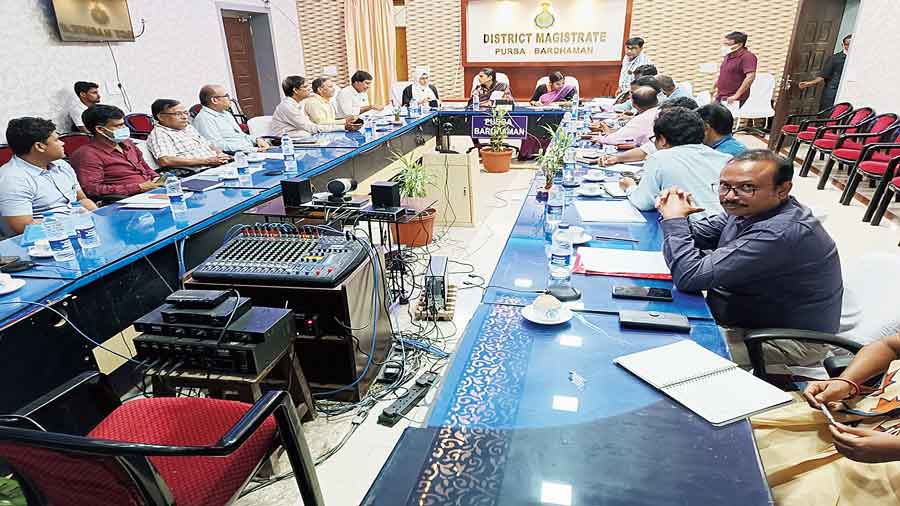The administration in Bengal’s rice bowl, East Burdwan, on Friday decided to appeal to the state electricity department to urgently restore power connections to around 1,700 submersible pumps that were disconnected in the past because of unpaid bills.
Officials said this decision was taken at a meeting on Friday evening after the Damodar Valley Corporation informed the state government that if it released any more water for irrigation, multiple drinking water projects that depend on its dams would be affected.
“There is a huge rainfall deficit this year. The stock of water in DVC’s dams is insufficient. So, we have decided to approach the electricity department to restore connections to submersible pumps that were disconnected in the past because of overdue bills, so that the pumps can irrigate paddy fields during this ongoing kharif season,” said Shampa Dhara, chief of East Burdwan zilla parishad.
Sources said the electricity department would not be asked to waive the farmers’ bills but set them aside for the time being and restore power connections in lieu of a minimum fee from defaulting farmers.
Officials said it was a last-ditch attempt to help in the sowing of kharif paddy as reports of seedling damage amid scanty rain have already started coming in.In East Burdwan, only 80,000 hectares of land has been covered by paddy cultivation this time when the target area was 3.71 lakh hectares.
Several officials in the agriculture department said that they doubted whether paddy sowing met 20 per cent of the targeted 41.81 lakh hectare coverage across Bengal.“Earlier, at least 70-80 per cent of farmers completed their sowing process by the third week of July. This year, there are too few areas that will be covered. If we fail to find a solution right now, production of paddy will certainly be hampered,” said a senior agriculture department official.
Some district officials, however, said that the decision to take underground water for irrigation would leave a long-term negative impact. There are around 20,000 pumps or deep tube well in East Burdwan, including over 2,500 lying defunct.
“Farmers use underground water only when there is an extreme crisis as they have to pay huge electricity bills. Now resuming those pumps would increase the cost of paddy production this year. Financial issues aside, the level of the groundwater would also go down,” said a senior state government official.
“The targeted area won’t be covered by water generated by submersible pumps, but an attempt is being made to minimise crop loss,” he added.
Earlier this month, state government officials from at least four south Bengal districts held a meeting in Burdwan and requested the DVC to release water early.The DVC did release water through its irrigation canal network for six days starting from July 22 but it was insufficient as dry land soaked up most of the water.
“Earlier, the DVC used to release water for at least 15 days but this time it could do so only for six days. They don’t have any option as their dams are running out of water,” said an official.DVC officials said there were many drinking water projects in the upstream of the dam in Durgapur and those would get affected if any more water was released for irrigation.“We can’t compromise with drinking water supply. Scanty rainfall has left our dams with very low levels of water,” said a DVC official.










